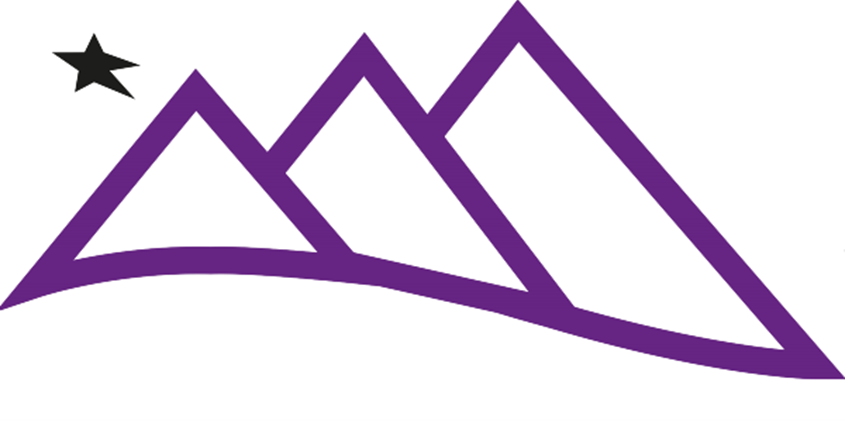BS EN 1276 and BS EN 14476: Commonly Questions Answered

We've answered some commonly asked questions about BS EN 1276 and what it means for your business.
What does BS EN 1276 mean?
The Food Standards Agency has published guidance documents for all food handlers to prevent the risk of cross-contamination of E-Coli.
As Astral Hygiene are so well versed in food hygiene regulations we can now offer advice and support regarding the safe and most effective use of our products including Cleaner Sanitiser for use on Hard Surfaces, and Bactericidal Detergent for use in water to ensure safe food preparation.
What exactly is BS EN 1276?
BS EN 1276 is a European Standard which ensures that the bactericidal activity of chemical disinfectants is effective against controlling harmful micro-organisms.
All BS EN 1276 chemicals have been tested to ensure they are killing 99.999% of bacteria within 5 minutes. Many of our products here at Astral Hygiene have a contact time of only 30 Seconds, which is a more workable time than 5 minutes in a commercial kitchen. To ensure you are using a BS EN 1276 product correctly and to properly make sure that your product is BS EN certified and it must be used on hard surfaces. All BS EN 1276 products must kill bacteria such as MRSA, salmonella, E. coli, flu virus (H1N1) and Pseudomonas Aerginosa.
How do I prevent cross contamination?
It is really important that you clean and disinfect all surfaces, chopping boards and equipment thoroughly before and after use.
Hand washing is of paramount importance in conjunction with good hygiene and always keep in raw and ready to eat foods separate. The food standards agency is very concerned about the reduction of the risk of E. coli cross contamination. The disinfection of surfaces can be accomplished using a BS EN 1276 spray. This has a contact time of 30 seconds meaning it will kill most harmful strains of bacteria dead within 30 seconds.
What is the importance of Cleaning as you go?
There is a lot to be said for cleaning as you go because you can use our cleaner sanitiser to sanitise and clean as you go. If you spray then wipe (step 1) the sanitiser on sideboards, then spray and leave it for 30 seconds and then simply wipe it off that area will be sanitised. Do make sure whichever chemical you procure it does say on the back BS EN 1276 or BS EN 13697 and this will keep your environmental health officer very happy if used appropriately.
What BSEN chemicals do I use when washing dishes?
When you are washing dishes, you are removing the soil, however it is important to note that you’re not actually killing the bacteria when you wash in this way. To kill the bacteria, need to wash the surfaces at a high temperature and maintain that temperature for some time - thermal disinfection. The trouble is washing dishes at a high temperature for a prolonged period of time is it really going to work with you washing with your hands. This is why a commercial dishwasher is the most effective in sanitising your dishes. All environmental health officers and the food Standards agency would advocate that a commercial dishwasher is the best way to sanitise your dishes. Where the dishwasher is unavailable or impractical there is an alternative way.
To obtain the correct level of disinfection you must use a BS EN accredited product to sanitise your dishes. There is a distinction between washing your dishes and sanitising your dishes. We’ll tackle washing your dishes first. Many of us know this is done through using a simple detergent. The sanitisation process is a little trickier and you must be accurate in both the amount of water that you put in your sink (you must know how many litres it holds) versus the amount of chemical that is introduced into that liquid.
There is a great deal of confusion around which BSEN (British Standards European Norm) to use when sanitising dishes, and this isn't being helped with the confusion around which BSEN tests for what. Let me explain.......
BSEN 1276, is a test which us undertaken on a hard surface ONLY. This test is undertaken on a hard surface, in which the number of bacteria on that hard surface is firstly assessed, then sanitised and then assessed again. So, for a product to be certified BSEN 1276, it must be used on a hard surface, and not in water (this is important - stay with me here!). For a chemical product to Pass BSEN 1276, it must achieve a bacteria reduction of 99.999% - this is the pass rate. Any product that says, tested against - doesn't mean it has passed BSEN 1276, and any product that says kills 99.99% of bacteria likely hasn't passed BSEN 1276 - because if it had passed and say kills 99.999%, the manufacturer would say it has passed.
In water, the test is entirely different, because the environment in which the test is being conducted is not a hard surface. BSEN 1040 is the test that must be passed to demonstrate chemical effectiveness in water. This European Standard specifies a test method and the minimum requirements for basic bactericidal activity of chemical disinfectant and antiseptic products that form a homogeneous, physically stable preparation when diluted with water. So, this means, any bactericidal detergent that is claiming to be tested against of even passing BSEN 1276, this product is not fit for its intended purpose - for sanitising dishes, ergo BSEN 1276 is only effective on hard surfaces, and not proven to kill bacteria when heavily diluted in water.
The bactericidal detergent which we recommend here at Astral Has a dilution rate of one part chemical to 100 parts water and is BSEN 1040. So, to illustrate that a bit more clearly that would be in a 20 litre sink you would put 200ml of chemical. To ensure you have the correct delusion to kill 99.999% of bacteria. You must also follow the remainder of the instructions on the back of the bottle which detail submerging your dishes in the water for five minutes, pulling them out of the solution and putting them on the newly sanitised draining board to dry. Never wiping them with a tea towel and putting them away on a sanitised surface.
Can I use bleach to clean a chopping board?
In essence the answer to this question is it a definite no. Bleach is a Caustic non-food safe chemical, which will taint your food and potentially leave behind a dangerous residue on the surfaces that you prepare food for your customers.
I only have a small cafe, are these regulations pertinent to me?
Any food handling operative must comply with the guidance on the Food Standards Agency website and they all must use appropriate chemicals to reduce the contamination of E Coli in the food that they serve to their customers.
Everyone should know about the differences between BS EN 1276 and BS EN 14476
I have historically discussed all the nuances between the differences between BS EN 1276 products and BS EN 14476 products.
We have learned that coronavirus is an umbrella term encompassing both the common cold and flu and also more severe and pertinent viruses like COVID-19 and SARS-CoV-2. We also discussed previously how manufactures are trying to manipulate the audience limited knowledge (i.e YOU) to give the impression that there product does kill COVID because it kills coronavirus, and that it is BS EN 14476 or BS EN 1276 when it has failed the accreditation.
So let’s start at the beginning; BS EN 1276 is a test whereby a chemical is tested on a hard surface. To meet the criteria for this test the chemical MUST be tested on a hard surface. This test would never be used in water, for fogging, on soft furnishings, this test is specific only to hard surfaces.
There are industry professionals who still get confused with this test and are looking for a bactericidal detergent to sanitise dishes (in essence washing up) and they are looking for a BS EN 1276 product. This product doesn't exist.... why? Water is not a hard surface - of course!!
BS EN 14476 is a standard test which is conducted in a laboratory which proves that the chemical that is being tested contains antiviral ingredients. This test also demonstrates that the chemical which has earned the BS EN 14476 accreditation kills Poliovirus, Norovirus, Influenza A and adenovirus.
To have earned the accreditation BS EN 14476, it is a good, well researched chemical, but it does not categorically mean it kills SARS-CoV-2. There is a brand-new test which has recently come out, which all GOOD chemicals are putting themselves through at their own cost to demonstrate effectiveness against SARS-CoV-2. Notice I am being very specific with my language during this blog, to make sure that everyone understands exactly what I am saying rather than just using vague terms which could be misunderstood.
So, we learned that manufactures manipulate the test data; to make it seem as though their chemical product has passed the accreditation test.
So, when you are putting any chemical through a BS EN test, a pass rate of 99.99% germ killing action means that it has actually failed the test. A pass rate for an accreditation of BS EN 1276 – that being the bacterial killing is 99.999% log reduction of bacteria. Any less than 3 number 9's is a failure after the point.
I have spoken about all the offerings available to you in a little walk around the supermarket. I invite you to go to the bleach aisle and take a look at the bottles of antibac sprays etc. The number of bottles that advertise kills 99.99% of germs is astounding. I find it hard to understand how the manufacturers have come to this conclusion, because the only test available is 99.999% kill rate or they fail. You'd never get your test data back saying 99.99% - it just isn't done ANYWHERE! This is a dupe, and it infuriates me – and will not help you to pass your environmental health inspection!
99.99% bacteria kill rate to me is 1. A FAIL and 2. Duping all the people who just want to keep themselves safe!
So, we need to be very accurate in terms of what it is that we’re looking for and manufactures need to be very accurate in terms of the claims that they’re making when talking about test rates and particularly test pass rates. Which is just not happening as a whole sector.
We've created a BS EN 1276 section on our website and a newly created BS EN 14476 section. Both sections have Frequently Asked Questions so any initial queries can be answered instantly. You'll be able to find any chemical that has passed the accreditations on these sections of our website.
When we bring in new chemicals, it is only those with the strongest subject matter expertise that make the decision that it is a well-researched and appropriately tested chemical that is GOOD enough to be aligned with the Astral Hygiene brand. Our honesty and integrity in this sector sets us apart, and we are proud of that.
Trust the experts, trust Astral Hygiene.








